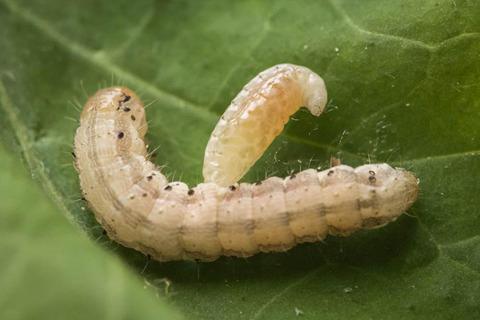当前位置:
X-MOL 学术
›
Funct. Ecol.
›
论文详情
Our official English website, www.x-mol.net, welcomes your
feedback! (Note: you will need to create a separate account there.)
Top‐down effects from parasitoids may mediate plant defence and plant fitness
Functional Ecology ( IF 4.6 ) Pub Date : 2020-07-14 , DOI: 10.1111/1365-2435.13617 Ching‐Wen Tan 1 , Michelle L. Peiffer 1 , Jared G. Ali 1 , Dawn S. Luthe 2 , Gary W. Felton 1
中文翻译:

寄生物的自上而下效应可能介导植物防御和植物适应性
更新日期:2020-07-14
Functional Ecology ( IF 4.6 ) Pub Date : 2020-07-14 , DOI: 10.1111/1365-2435.13617 Ching‐Wen Tan 1 , Michelle L. Peiffer 1 , Jared G. Ali 1 , Dawn S. Luthe 2 , Gary W. Felton 1
Affiliation

|
- Plants face many environmental stresses that can impact their survival, development and fitness. Insects are the most diverse, abundant and threatening herbivores in nature. As a consequence, plants produce direct chemical and physical defences to reduce herbivory. They also release volatiles to recruit natural enemies that indirectly protect them from herbivory. The recruitment of parasitic wasps can benefit plant fitness because they ultimately kill their insect hosts.
- Recently, studies showed that parasitoids can indirectly mediate plant defences by modulating herbivore oral secretions. In addition to the direct benefits of parasitoids in terms of reducing herbivore survival, we tested if the reduction in induced defences by parasitized caterpillars compared to non‐parasitized caterpillars may reduce the costs associated with defence expression.
- We provide evidence that tomato plants treated with saliva from parasitized caterpillars have significantly higher fitness parameters including increased flower numbers (16.3%) and heavier fruit weight (13.5%), compared to plants treated with saliva from non‐parasitized caterpillars. Since plants were grown without actual herbivores, the higher values for these fitness parameters were due to lower costs of induced defences and not due to reduced herbivory by parasitized caterpillars. Furthermore, the resulting seed germination time was shorter and the germination rate was higher when the maternal plants were previously exposed to parasitized herbivore treatment compared to control (non‐treated) plants.
- Overall, application of saliva did not result in transgenerational priming of offspring defence responses. However, offspring of parents exposed to caterpillar saliva had lower constitutive levels and higher induced levels of trypsin inhibitor than offspring from unexposed parents.
- This study shows that the saliva of parasitized caterpillars can modulate plant defences and further demonstrates that the lower induction of plant defences is associated with elevated plant fitness in the absence of herbivore feeding, suggesting that induced plant defences are costly.
中文翻译:

寄生物的自上而下效应可能介导植物防御和植物适应性
- 植物面临许多可能影响其生存,发育和健康的环境压力。昆虫是自然界中种类最多,数量最多,威胁最大的食草动物。结果,植物产生直接的化学和物理防御作用以减少草食。它们还释放挥发物以招募天敌,间接保护他们免受草食动物的侵害。招募寄生性黄蜂可以有益于植物健康,因为它们最终会杀死其昆虫宿主。
- 最近,研究表明,寄生蜂可以通过调节草食动物的口腔分泌物间接介导植物防御。除了在降低草食动物的生存方面,寄生虫的直接好处外,我们还测试了寄生虫和未寄生虫相比诱导寄生虫的防御能力降低是否可以降低与防御表达相关的成本。
- 我们提供的证据表明,与未寄生虫毛虫的唾液处理相比,用寄生虫毛虫的唾液处理的番茄植株具有显着更高的适应性参数,包括增加的花数(16.3%)和较重的果实重量(13.5%)。由于植物生长时没有实际的草食动物,因此这些适应度参数的较高值是由于诱导防御的成本较低,而不是由于被寄生的毛毛虫减少了草食动物。此外,与对照(未处理)植物相比,当母本植物先前接受过寄生化的草食动物处理时,种子萌发时间更短,发芽率更高。
- 总体而言,唾液的施用并未导致后代防御反应的跨代启动。然而,暴露于毛毛虫唾液的父母的后代比未暴露父母的后代具有较低的组成水平和较高的胰蛋白酶抑制剂诱导水平。
- 这项研究表明,被寄生的毛毛虫的唾液可以调节植物防御能力,并进一步证明在缺乏草食动物的情况下,植物防御能力的降低与植物适应性的提高有关,这表明诱导植物防御能力的成本很高。











































 京公网安备 11010802027423号
京公网安备 11010802027423号